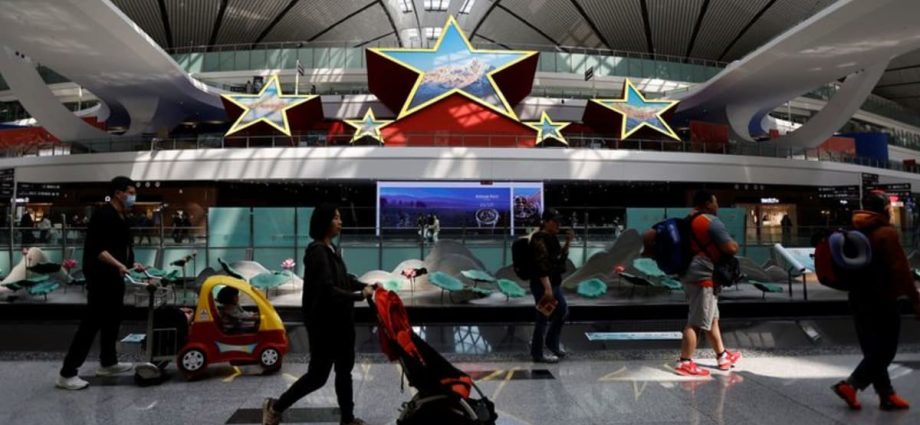
However, both inbound and outbound travel have yet to fully return to pre-pandemic levels, lagging behind at around 85 per cent compared with traffic before global borders were shut about four years ago.
Despite sluggish international air travel numbers, officials said China could expect to see record-high air passenger trips this year, reaching 700 million on the back of strong domestic demand.
AIRPORTS RECOVER
Airports are also bustling with activities as business and travellers return.
At Beijing’s Daxing International Airport, a new maintenance facility for business jets has just opened its doors. It includes a 5,000 sqm air-conditioned and heated hangar that can accommodate as many as eight business jets at any one time.
The airport, one of the newest international gateways to China, was built with the aim to become one of the world’s busiest.
But the COVID-19 pandemic threw a spanner in the works. Just months after starting operations in 2019, its service was suspended when all its flights were rerouted to Beijing Capital International Airport due to pandemic restrictions. It resumed operations in January last year.
Paul Desgrosseilliers, general manager of aviation service ExecuJet Haite, said the opening of the maintenance facility signifies business and general aviation has finally taken off at Daxing.
“It’s one of the only international airports that has unique dedicated space for business jets. So there’s huge growth potential in terms of the development here,” he added.
INBOUND AND OUTBOUND TRAVEL
It is not just foreign arrivals that are slow to return to China. Chinese travellers are also making fewer trips overseas.
Shukor Yusof, founder of Endau Analytics, said the appetite for international travel has not recovered due to spending power and rivalry with the United States.
“The Chinese have become more aware about spending money overseas. The yuan has weakened compared to pre-pandemic levels,” he said.
“There is also a decline of at least 50 per cent of flights coming in from North America. That’s primarily because of geopolitics, and I suspect that will be the case until there is more clarity, until the US presidential elections in November.”
With ongoing tensions in the Middle East and Europe, as well as the recent surge in mpox cases, the global aviation industry is bracing itself for turbulence.
Still, analysts said China may be better placed to weather the currents with its domestic tourism.
“The Chinese have the advantage of having a large hinterland. They don’t really need the outside world to sustain the aviation business for the airlines,” said Yusof.

